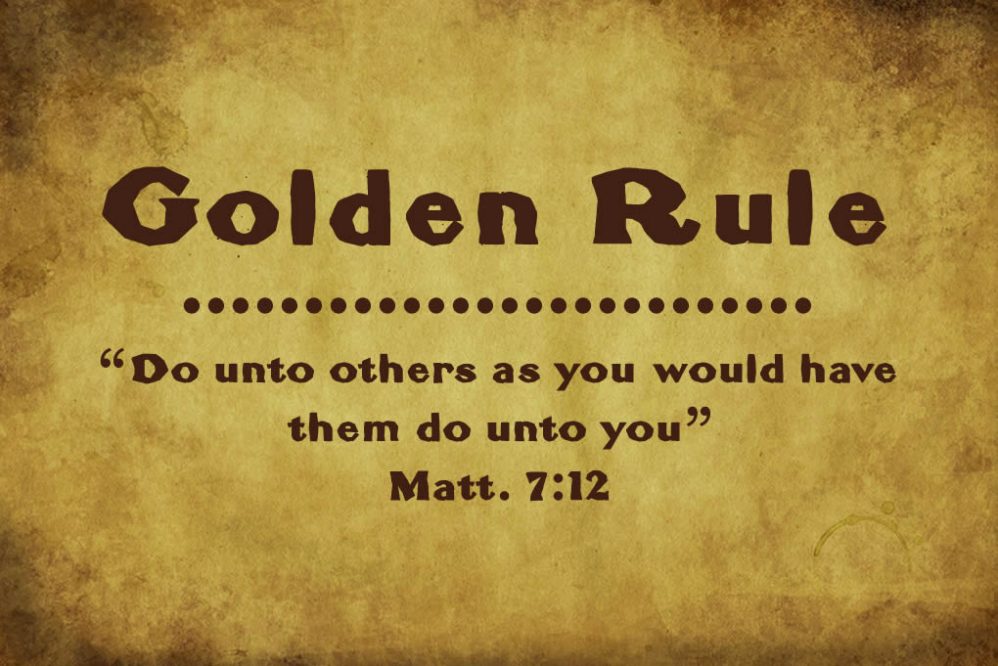Introduction
The secular and spiritual divide is one of the common ways some Christians seek to navigate the reality that Christians who belong to a new creation (in Christ) still live and breathe in this old creation, together with all the sons and daughters of Adam.
In this way of thinking, the spiritual sphere includes distinctively Christian things like church-going, prayer, bible study, worship, etc. The secular sphere is the rest of life outside the spiritual sphere.
Based on this distinction, believers are admonished to focus more on the spiritual sphere as the most valuable and see the secular sphere as something merely inevitable for life in this sinful world.
On the one hand, some use this dichotomy to make the secular realm impervious to spiritual influences. For them, being spiritual is limited to the confines of the church or when spiritual activities are taking place. Outside of that realm, anything goes; the secular sphere is impervious to the sanctifying effects of the gospel. So when we are outside of the church or our private devotions, we can be as worldly as everyone else.
On the other hand are those who use this dichotomy to forbid works of art originating from the secular realm. The secular realm is seen as absolutely God-dishonoring, like Nazareth, where nothing good can come out from (though Jesus did come from Nazareth in the end).
In this article, I focus on the latter use of this dichotomy and its weaknesses.

A good but fallen creation
One reason why some Christians are suspicious of anything that comes from the secular realm is the reality that we live in a fallen world.
Adam and Eve sinned and human nature, together with the creation order itself, became corrupt. Because of this fall, many assume that nothing good can come from the world, separated from Christ’s redemptive work.
However, the story of this world did not start with the fall but with a perfect and good creation. God saw everything he made and declared them good (Genesis 1).
While the fall led to the corruption of the created world, that corruption, by God’s grace, was not total, such that nothing good can ever come from the world.
When God made a covenant with Noah and the human race, he admitted that man is still an image-bearer: “Whoever sheds human blood, by humans shall their blood be shed; for in the image of God has God made man” (Genesis 9:6).
Even in this fallen creation, God repeated the initial commands to Adam: be fruitful and increase in number and fill the earth (Genesis 9:1). He also promised that he would no longer destroy the world through a worldwide flood (Genesis 9:15), but that seedtime and harvest, cold and heat, summer and winter, day and night, will never cease (Genesis 8:22).
Though creation is fallen and under the pain of childbirth (Romans 8:22), it is still a sphere where God makes himself known (Romans 1:19-20), blesses us with every good thing (Acts 14:14-18), makes his glory known (Psalms 19:1).
We don’t live in Eden. Creation is fallen and is being redeemed (Romans 8:22-26) by Christ – a redemption that will be consummated when Christ returns. However, the created world between paradise lost and paradise restored is still God’s good creation, the centre of the display of his glory. The earth is still the Lord’s and everything in it (Psalms 24:1)
Though fallen, Paul could still say that “everything God created is good” (1 Timothy 4:4). It’s still a sphere where God gives good and perfect gifts.

Natural revelation, natural law, and the pursuit of virtues
Nothing said above should minimize the reality of our sinfulness.
Paul was absolute when he declared that no one is righteous, good, or God-seeking (Romans 3:9-18). Our sin made us God’s enemies (Romans 5:10)
Every human being is a natural man who cannot understand the things of the Spirit (1 Corinthians 2:14) or discern the mysteries of the kingdom (Mathew 13:10-11). We are all sheep that have departed from the Shepherd of our soul (Romans 3:12).
As people born in sin (Psalms 51:5), we cannot offer to God the perfect righteousness that he demands. Consequently, none of us can be justified before him (Romans 3:20). Consequently, we are all children of wrath (Ephesians 2:1-4) destined to eternal perdition in hell.
Though we know, by his revelation in nature, that God exists, we deny him and choose instead to worship created things rather than the creator (Romans 1:18-23).
However, despite the sinfulness of the natural man, two things are still taught in the Scriptures:
The image of God and the creation mandate
First, the natural man still bears God’s image and is, therefore, still creative despite his sinfulness (Genesis 9:6). Despite our sinfulness, we still harness the natural world, using the creative power God gave us to make new things and improve old things.
Our ability to obey the creation mandate (Genesis 1:25-26), though corrupted by sin, is not eviscerated. As fallen creatures, we can still exercise dominion, be fruitful and multiply, and create the material and non-material things we need for life in this fallen creation.
We see this already in Genesis 5: Jabal was the father of those who live in tents and raise livestock (verse 19); Jubal was the father of those who play stringed instruments (verse 21), Tubal-Cain forged all kinds of tools out of bronze and iron (verse 22), etc.
Despite our sinfulness, we have created enormous civilizations and provided for life in those civilizations.

The natural law in unbelievers and believers
Second, despite his sinfulness, man is still a moral being.
Paul taught that even though Gentiles did not have special revelation from God, they still do by nature the things the law requires (Romans 2:14). By this, they show that the requirements of the law are written on their hearts (verse 15). And their consciences even testify to this fact (verse 15).
God has a natural law written on the hearts of Gentiles and Jews, and he has given us all a conscience that reminds us of our moral responsibilities towards this law.
Consequently, while we can deny or distort this law by ignoring (1 Timothy 1:9) or searing our consciences (1 Timothy 4:2), it still remains there. This is similar to the realities of Romans 1. Though we can deny the apparent natural revelation of God by suppressing the truth in wickedness (Romans 1:18), it doesn’t change the fact that God does exist. And like the Athenians, we still have temples to the unknown God (Acts 17:23) because something deep within us tells us that we are dependent beings.
This natural law and the conscience that testifies about it do lead unbelievers to pursue moral virtues. And if they are brought up in civilizations that the gospel has permeated, their conscience is even more attuned to the natural law, and they live virtuous lives.
Therefore, sinners don’t need the gospel to pursue moral virtues. In fact, because obeying God’s natural law leads to human flourishing, vice versa, a mere self-centred desire to flourish can lead individuals and societies to pursue moral virtues.
But sinners cannot be morally perfect. The natural law in their hearts cannot save them since no one produces perfect righteousness in obedience to its demands. Therefore, despite their moral virtues, all natural men are doomed to destruction.
The only way of salvation is through special revelation that culminated in Jesus Christ, who came and lived a life of perfect obedience to all of God’s laws (natural and non-natural) and offers that perfect righteousness as a gift to every sinner.
Those whom the Father gives to Jesus come to him. They are united to him by faith and his perfect righteousness become theirs, their sins, his. He calls these people out of the world (John 17:20-24) and constitutes them as his church, his holy temple (Ephesians 2:19-22).
However, though he called them out of the world, his people still live in the world. Though they seek first the kingdom of God (Mathew 6:33), they still have to fulfil the creation mandate in union with other humans who still belong to the devil.
Though we are now a new people, our lives intersect with unbelievers. And it does so in one vital area – we are all moral beings. Believers also have the natural law, though we are protected from the denial and distortion of that natural law by God’s revelation of them in scriptures (what we call the moral law). Though there are laws God gave to us outside the natural law (the command to baptize and eat the Lord’s Supper, for example), coming to Christ does not obliterate the natural law; rather, God’s revelation clarifies and affirms them.
A mutual pursuit of virtues
Consequently, both believers and unbelievers pursue moral virtues. Though we believers do so empowered by God’s Spirit (Romans 8:5-10) with an explicit desire to glorify God (Mathew 5:13-16), unbelievers do it for self-centred (it’s good for the flourishing of individuals and societies) or legalistic reasons (they want to earn the favour of God or the gods).
Also, though believers have great clarity on the natural law (as clarified by God’s revelation) and are called to a higher moral life than natural law, unbelievers attempt to deny or distort natural law.
Despite these differences, it is still true that believers and unbelievers do pursue moral virtues. We both consider honesty, hard work, prudence, self-control, respect, love, perseverance, etc., as virtues and we both long for happiness and joy, though how we define them, how and in what we seek them may differ.
One way we reflect this pursuit of virtues is in the works of art we create – paintings, music, movies, novels, etc. Due to this mutual pursuit, unbelievers can create paintings that extol beauty and perseverance, make movies that promote self-control and hard work, sing songs that glorify honesty and prudence.
Accordingly, an absolute rejection of everything produced by unbelievers is wrong-headed and impractical. Why? An absolute rejection of everything “secular” will include the rejection of secular teachers, lecturers, doctors, lawyers, entrepreneurs, accountants, authors etc. How practical is that?
Even Paul quoted pagan authors (Titus 1:12, Acts 17:27-28).
If we don’t embrace such blanket rejection of other secular creativity and obedience to the creation mandate, on what basis do we absolutely reject any secular art production?
If Christians are to be virtuous and unbelievers promote virtues in works of art, then consuming such pieces cannot be inherently ungodly.

Declaring the glory of God
We have seen already that the created order declares the glory of God.
Inanimate creation declares the glory of God even though it has no consciousness of it.
When sinners use the raw materials God has given in the created world to produce virtuous innovations (scientific, technological, and artistic) that fulfil the creation mandate, they bring glory to the God who made them and those raw materials.
So while believers consciously and deliberately glorify God in everything (1 Corinthians 10:31), unbelievers also glorify him, albeit unconsciously and unwillingly.
Unbelievers, according to Wayne Grudem, can “demonstrate and reflect the wisdom of their creator, demonstrate Godlike qualities of skill and moral virtue and authority over the universe and so forth.”
“Think about such things”
However, the point here is not to encourage a blanket consumption of “secular” art.
Unbelievers do deny and distort natural law; they do pursue immoral and God-dishonouring ends (and they use immoral and God-dishonouring means). And the works they make, including works of art, reflect this perversion. Moreso, unbelievers are inherently God-haters, and that hatred and disregard for the true God will sometimes reflect in their works.
Accordingly, we must be very discerning when we choose secular works of art. We must separate the celebration of sexual immorality from the celebration of true love; the celebration of fraud and laziness from the celebration of hard work; the celebration of honesty from the celebration of dishonesty; awful, meaningless, filthy works of art from beautiful and God-honouring ones.
Such discernment is a Christian calling that we must embrace.
Paul’s admonition is apt:
“Finally, brothers and sisters, whatever is true, whatever is noble, whatever is right, whatever is pure, whatever is lovely, whatever is admirable—if anything is excellent or praiseworthy—think about such things. Whatever you have learned or received or heard from me, or seen in me—put it into practice. And the God of peace will be with you.” (Philippians 4:8-9).
There are so many horrible works of art out there, and we must be cautious about what we choose to consume.

A matter of priority
Here is the place to say that consuming secular art is not necessary or compulsory. You don’t have to.
If you choose to, you place yourself under immense responsibility to filter the good from the bad. (And in today’s world, it’s really immense). Are you willing to do all that discernment work, so you don’t pollute your mind and dishonour God? Do you think the benefits are more than the risk? Two good Christians can answer yes and no to the question.
The only thing you have to do, as a matter of command, is “teach and admonish one another with all wisdom through psalms, hymns, and songs from the Spirit, singing to God with gratitude in your hearts” (Colossians 3:16).
And even with spiritual songs, we must also be willing to discern songs that are theologically accurate from those that teach or promote heresies (1 John 4:1) and those that are beautiful from the ones that are just ugly and lacking in Christian excellence.
Conclusion
Just as Christians can enjoy the services of secular lawyers, doctors, accountants, etc., they can also enjoy the virtuous, creative works of art of unbelievers. While the producers of such art may not seek God’s glory directly, all such works – as a fulfilment of the creation mandate and in the promotion of moral virtues – redound to the glory of the one who gives every good and perfect gift.
While believers have no duty to consume secular works of art, we are not absolutely forbidden from them. We can do so with discernment and seek only those things that are true, noble, right, pure, lovely, and admirable. Our aim, as in everything, is to glorify the God who has made us and saved us by the blood of his dear Son.



